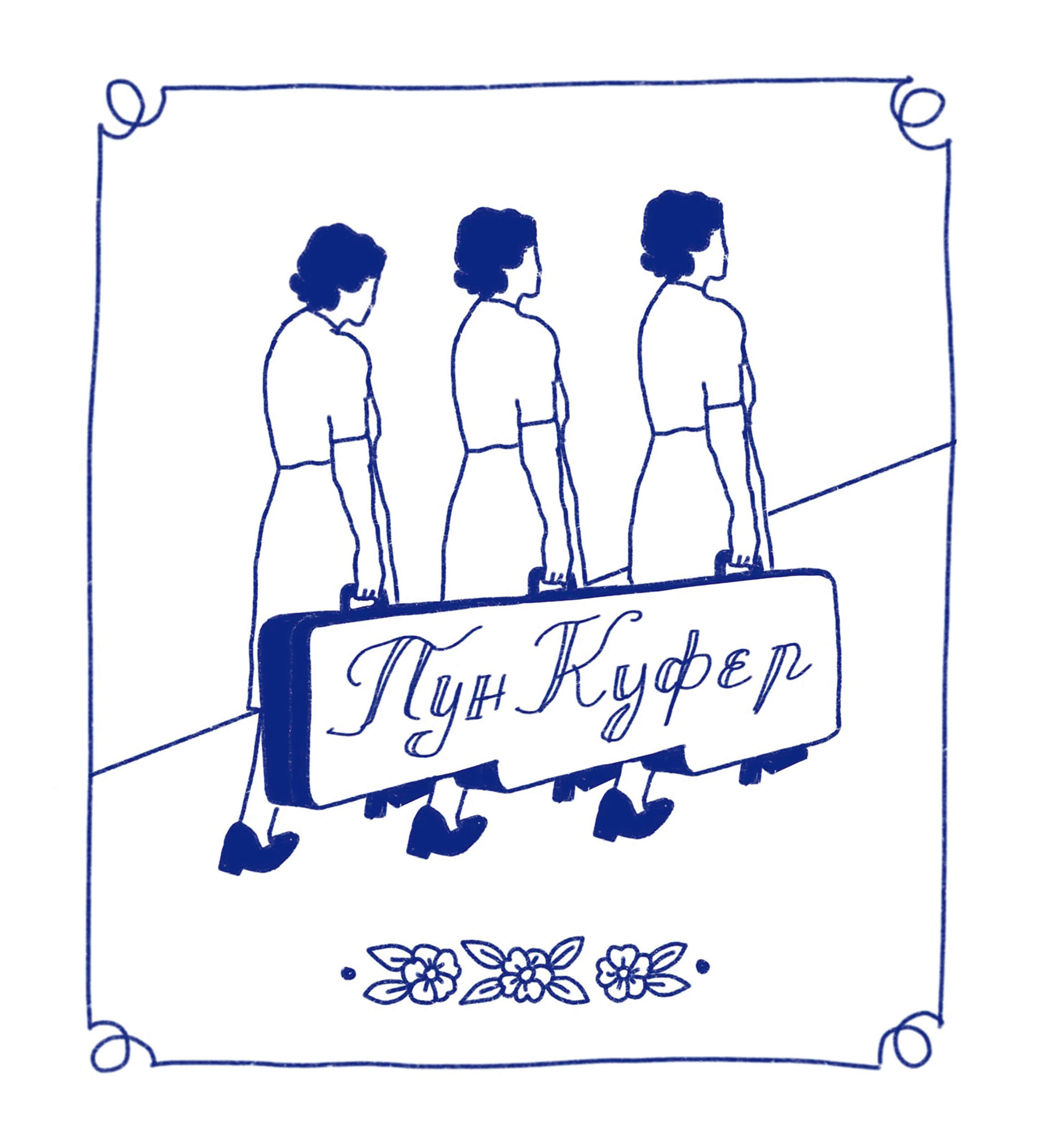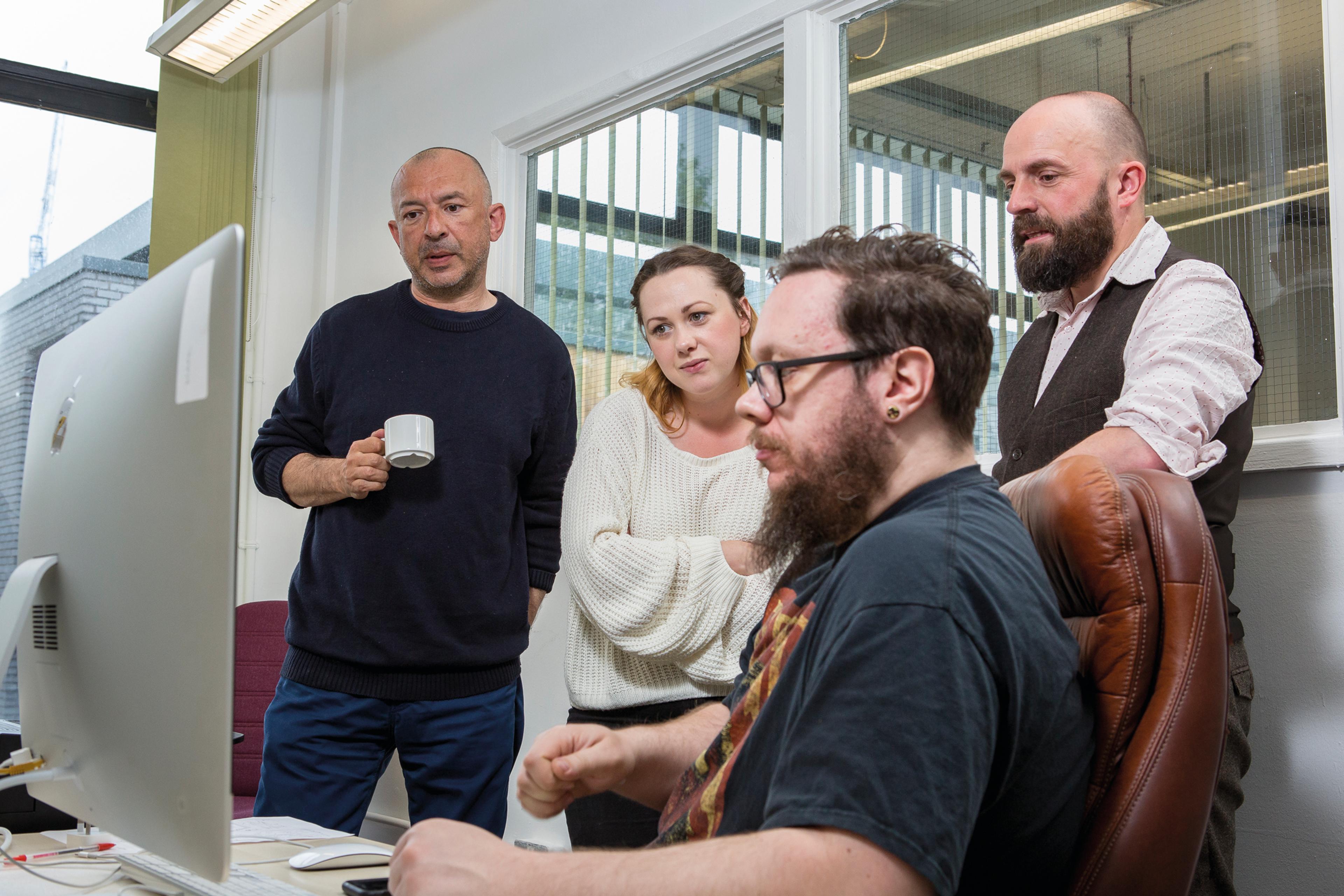Workplace discrimination leads to exploitation of Serbian women in Germany

Illustration by Sanja Stojkov
By Dunja Karanović
- Street paper news

Economic crisis and the beginning of deindustrialisation in the 1980s, then the ex-Yugoslav Wars and economic sanctions in the 1990s, all led to women over 45 to become one of the most vulnerable demographics on the Serbian job market.
The first to be laid off were women working in the textile, clothing and shoe industries, along with most female administrators. As technology advanced, many were declared redundant and made to accept substantially lower work positions in private companies and informal economies. Neoliberal capitalism reinvented traditional gender roles, resulting in the feminisation of poverty.
Women over 45 represent nearly half of the unemployed women in Serbia today, and the vast majority have been job seekers for over 10 years.
Discrimination against older women in the job market is present at every corner of Serbian society. Women are mainly employed in lower paid positions and have to work harder to progress than men. Economic difficulties and high unemployment create space for mobbing and illegal labour. Employees often overtly boast of looking for “young workers”, so many older women do not bother applying.
For women from socially deprived backgrounds, such as Roma women, disabled women, and women living in the rural areas, finding a job is even harder. They end up taking seasonal agricultural jobs, odd jobs in the last vestiges of the textile industry, or care work, all of which are low paid and unreliable.
Association Women at the Crossroads is committed to supporting women over 45 through training programmes and fighting against gender and age discrimination on the Serbian job market. Thanks to this initiation, women over 45 have been explicitly acknowledged as an employable demographic for the first time in public politics, increasing their chances to be involved actively in employment policy.
“Statistics show that women older than 45 are the most vulnerable group on the job market, being victims of double discrimination, based on gender and age criteria,” says Zorica Stojanovic of Women at the Crossroads. “Whereas men prosper at work as they age, women’s chances of finding a job after they reach 45 are decreasing.

Illustration by Sanja Stojkov
“At the start of their career, women are expected to get marry and start a family, while at the end of their career, they tend to lose their positions and are forced to accept poorer work conditions. Then they get fired, and so are not given the opportunity to reach legal retirement age and access a full pension scheme. All these factors contribute to diminishing their dignity and economic wellbeing.”
Now, more and more Serbian women over the age of 45 choose to leave for Western countries, often to work in social care. Svevinja Fischbach, a social worker and PhD candidate at Ljubljana University, Slovenia, researches the working conditions that those carers are exposed to in Germany. The research has been conducted in collaboration with Sladjana Jeremic, PhD candidate at the University of Political Science in Belgrade, who is also a member of the Centre for Women studies team.
“As opposed to young women who officially arrive in Germany as nurses, women older than 45 often work illegally, meaning that they get paid in cash and have no fixed working schedule, often given the huge responsibility of providing 24-hour care for a person,” Fishbach says. “If they are lucky, they may have some spare time, but often, they are located in small, isolated villages, so they depend on neighbours or their live-in families, and cannot communicate with others due to language barriers.”
For many of these women, their trip to Germany was their first time leaving Serbia, and the process involves several agencies and transport companies who earn money as middlemen. As many women who leave for this work are not trained nurses, they cannot access more secure work.
Because Serbia is not part of the EU, they are obliged to return to Serbia every three months in accordance with EU visa protocol.
“Nowadays, everything is being commodified and privatised, and Germany’s national health service is in decline,” says Jeremic. “In the world of capitalism, everything is bound to be strictly measured according to profitability, and care is devalued. It is still regarded as a job for which women are naturally inclined, but not as a skill that needs to be compensated adequately.” She adds that although women working abroad are given more freedom and control over their income, that income remains precarious.
Translated from Serbian by Katya Ven-vujetic
Courtesy of Liceulice / INSP.ngo
You may also be interested in...

Q&A: How The Big Issue Australia is empowering women through enterprise
Read more
Street Sense Media vendors stage play exploring solutions to homelessness
Read more